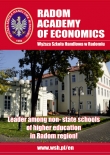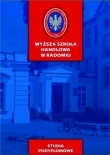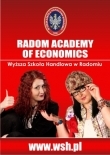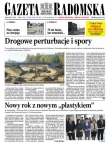 Deputy Head of Mission of Switzerland with a visit at REE
Deputy Head of Mission of Switzerland with a visit at REE „Switzerland, political system like no other” was the topic of the lecture held as part of the international lectures organized by Radom Academy of Economics. The lecture took place on the 22nd of May at the seat of RAE and was held by the Minister of the Swiss Embassy, His Excellency Martin Michelet.

As the title suggests, the lecture was connected with the unique political system present in Switzerland since the 19th century. What is the essence of its uniqueness? How does it work? How is it perceived by the citizens? These and other questions were answered in the lecture.
The essence of the political system of Switzerland is direct democracy. What does it mean? Every citizen decides if the initiative should be accepted or not in the constitutional referendum. He or she can also apply for a new law to be passed by promoting his ideas and collecting 50 000 signatures. Then the legislative referendum is organized, during which the citizens have the privilege to create a new law.
Despite the common acceptance of the direct democracy, it has also some disadvantages. First, the process of creating new law can quite slow and complicated. Each referendum has to be accepted with the double majority of voices in a national and cantonal scale giving advantage to the small cantons and weakening the power of the parliament. Another argument is that the proposals coming from the citizens for the constitutional amendments refer to the trivial aspects that not necessarily have an impact on the people’s lives, still some time is wasted to deal with the initiatives.
All in all, the Minister summarized the Swiss political system saying that “ In the country lacking a common language, religion and culture, nothing unites people more than a common political culture with a long deeply-rooted historical tradition”.
The lecture ended up with the questions from the public that were connected with Switzerland indifferent towards joining the European Union and pro-family policy.
Radom Academy of Economics systematically organizes open international lecturers with the representatives of the countries that maintain diplomatic relations with Poland. International lecturers are the perfect opportunity for a participation in a public debate with high-rank citizens of particular countries. We would like to recommend the lecturers particularly to the people interested in international relations, diplomacy, and the problems of the contemporary world.
















